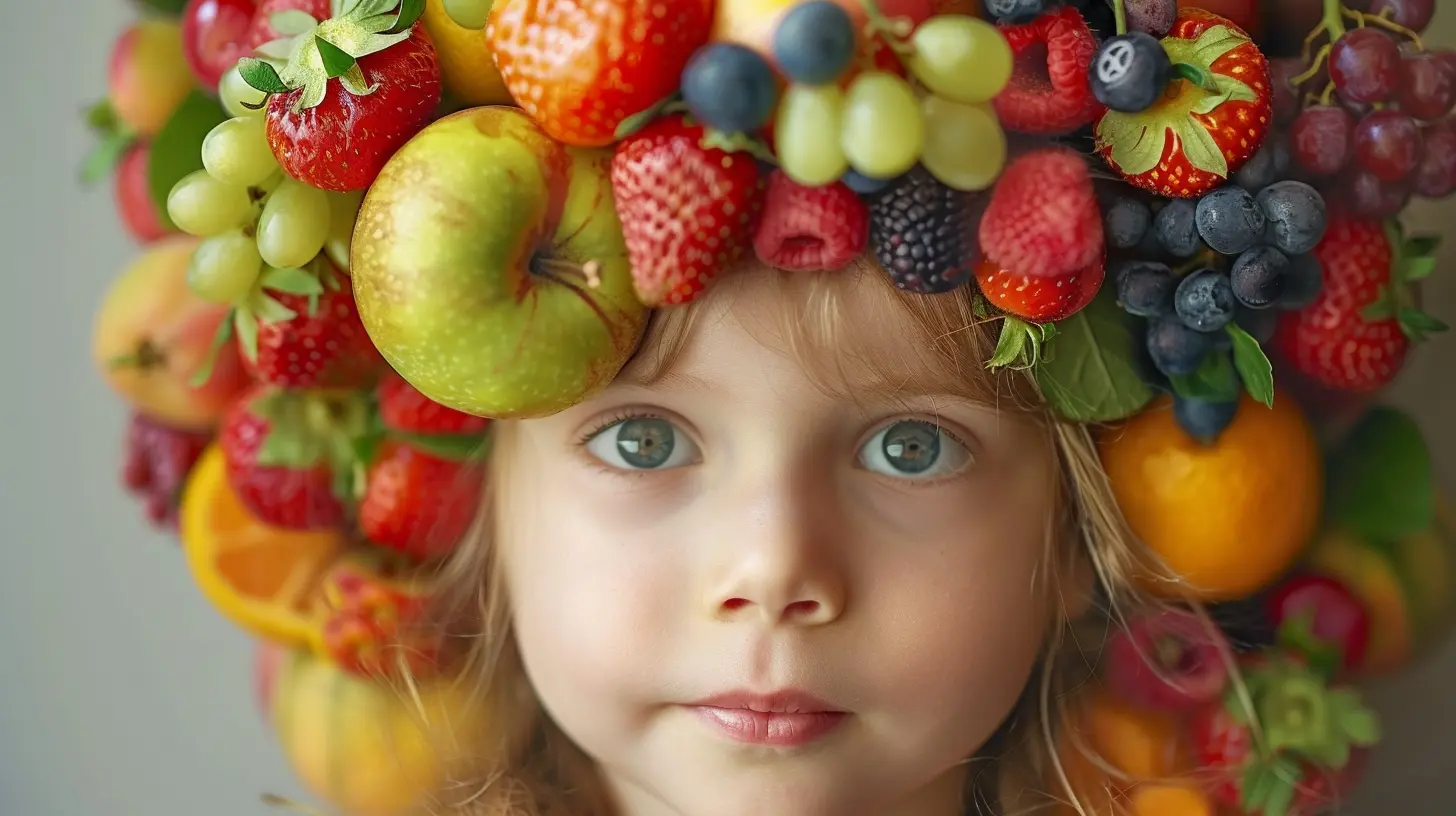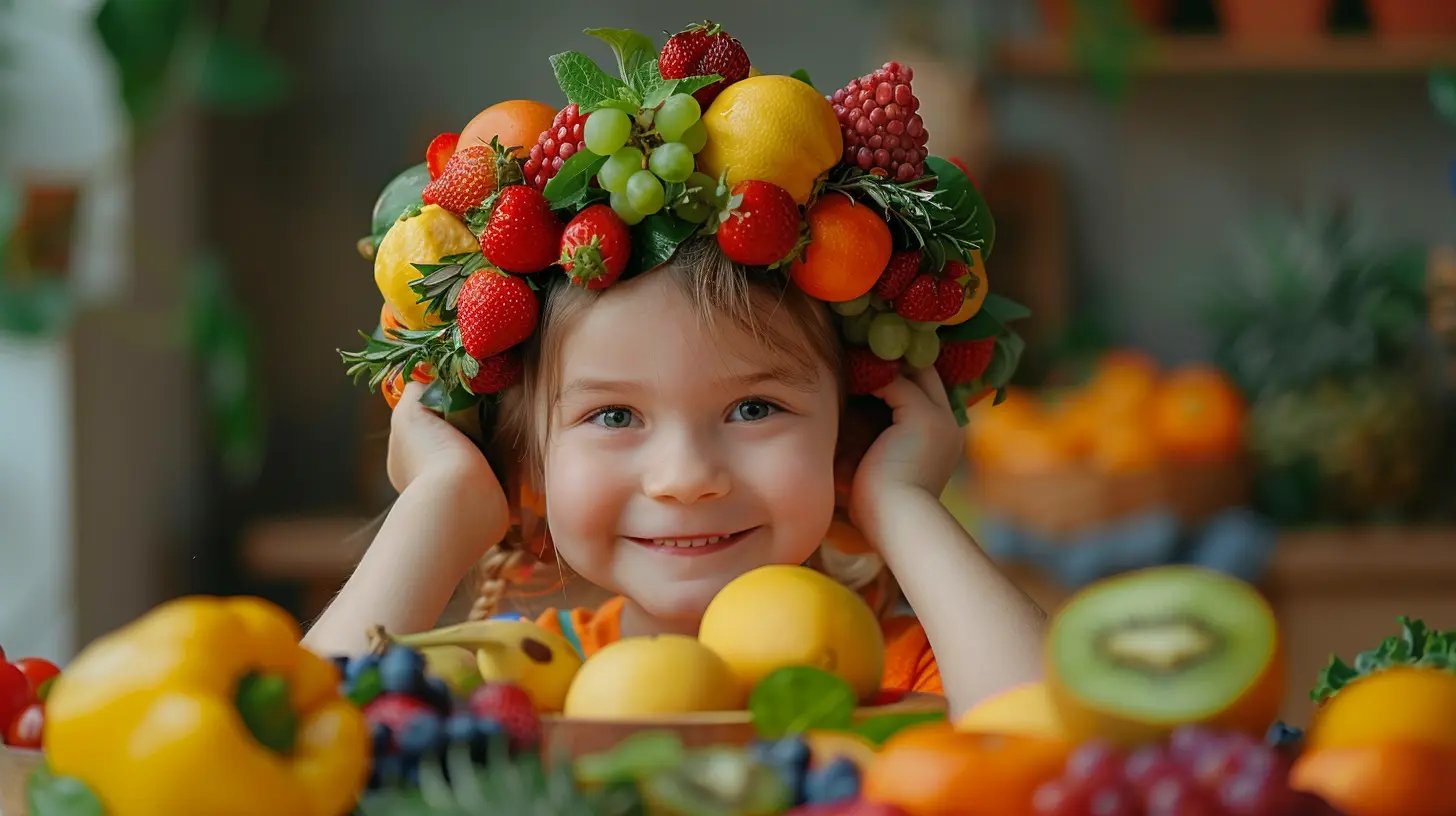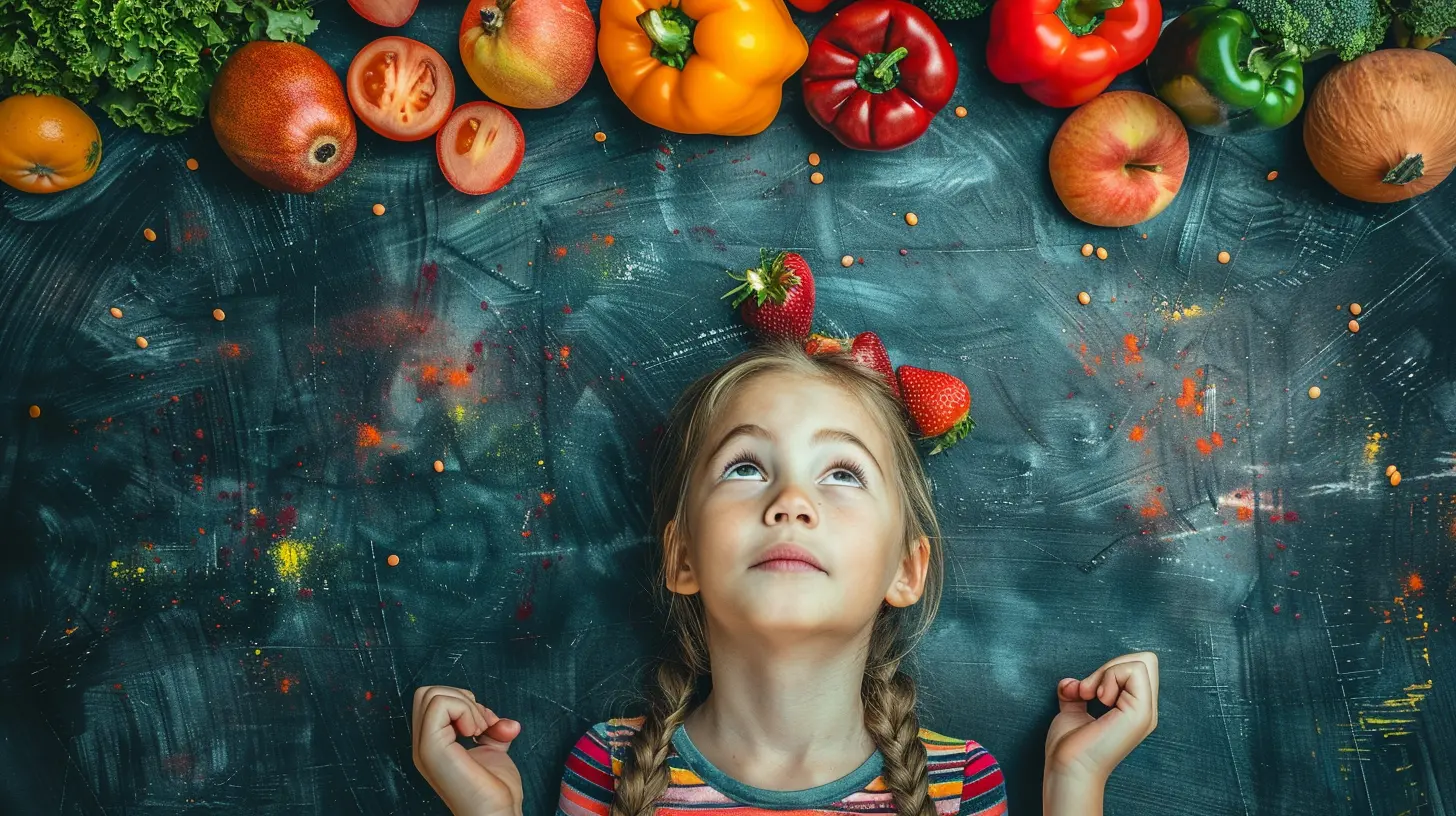The Vital Role of Nutrition in Child Brain Development
30 September 2025
If you've ever caught yourself staring at your little one and wondering what’s going on inside that rapidly growing brain—first of all, we’ve all been there. It’s wild to think about how quickly children learn, adapt, and develop. One day, they’re babbling and crawling, and the next, they’re asking why the sky is blue or how airplanes fly. 😅
Behind all those brainy milestones is a powerful driver: nutrition.
Yes, what your child eats plays a vital role in shaping not just their physical health but also how their brain grows and functions. And while we hear all the time about feeding kids to help them “grow big and strong,” there’s not nearly enough talk about how their diet fuels cognitive development, learning, and even emotional well-being.
So, let’s dive into the nitty-gritty of how food impacts your child’s brain—and what you can do to support optimal development, one bite at a time.
Why Nutrition Matters for Brain Development
Think of your child’s brain as a high-performance engine. It’s growing, firing neurons, building new connections, and trying to figure out this massive, complicated world—every single second. That brain? It needs fuel—and not just any fuel. It craves nutrients that power its performance.From the moment a baby is conceived, their brain begins developing at an astonishing rate. By the time they’re three years old, their brain is about 80-90% of adult size. That’s a lot of building going on in a short period! What they eat, even before they’re born, sets the foundation for lifelong brain health.
Key Nutrients That Support Brain Health
So what exactly should your child be eating? Let’s break down the brain’s favorite nutrients.1. Omega-3 Fatty Acids (The Brain’s Best Friend)
You’ve probably heard this one before, but it's worth repeating. Omega-3s—especially DHA (docosahexaenoic acid)—are essential for brain development.These healthy fats make up a big chunk of the brain’s structure. DHA, in particular, is crucial for building brain cells and promoting communication between them. More DHA = better attention, memory, and learning.
Foods rich in Omega-3s:
- Fatty fish (like salmon, sardines, mackerel)
- Flaxseeds and chia seeds
- Walnuts
- Fortified eggs
If your child is a picky eater (aren’t they all?), talking to a pediatrician about a DHA supplement might be helpful.
2. Iron (The Oxygen Carrier)
Iron helps carry oxygen to the brain and plays a big role in energy metabolism. Without enough iron, kids can feel sluggish, less focused, and even irritable.Iron deficiency early in life has been linked to delayed cognitive and motor development. Yikes.
Iron-rich foods:
- Lean red meat
- Poultry
- Beans and lentils
- Spinach
- Iron-fortified cereals
Pairing iron-rich foods with vitamin C (like oranges or strawberries) helps boost absorption. A sneaky way to double up!
3. Protein (The Building Block)
Protein is the stuff that helps build and repair tissues—including those in the brain. It’s also responsible for making neurotransmitters, the little messengers that help brain cells talk to each other.Great sources of protein:
- Eggs
- Dairy products
- Poultry
- Tofu
- Beans and legumes
- Nuts and seeds
Balanced meals with good protein sources support focus, mood, and mental energy.
4. Zinc (The Memory Booster)
Zinc doesn’t get the spotlight as much as other nutrients, but it should. It’s vital for brain signaling, memory, and helping the immune system run smoothly.Zinc-rich foods:
- Beef and pork
- Chickpeas
- Cashews
- Dairy
- Whole grains
It’s a small nutrient that packs a serious punch.
5. Iodine (The Brain Developer)
Iodine is like the invisible MVP in early brain development, especially during pregnancy and infancy. It helps make thyroid hormones, which are essential for brain growth.Iodine-rich foods:
- Dairy
- Iodized salt
- Seafood
- Eggs
Low iodine levels can lead to learning difficulties and cognitive delays, so this one’s important—even if you’ve never thought about it before.
6. Choline (The Memory and Learning Assistant)
Choline helps with the formation of brain cells and supports memory function. It’s especially critical during pregnancy and the early years.Good choline sources:
- Eggs (yep, again!)
- Liver (okay, not super common in kids’ diets but worth mentioning)
- Poultry
- Fish
- Dark green vegetables
An egg a day? Not a bad idea at all.
The Role of a Balanced Diet
It’s not just about individual nutrients. We’ve all met families who obsess over specific “superfoods,” but the truth is, your child’s brain thrives on a balanced, varied diet with all food groups.Think of it like a symphony. Each nutrient plays its instrument. When they work together in harmony, you get beautiful music. Miss a few notes, and—well, you get the idea.
Aim for:
- A colorful plate (the more colors = more nutrients)
- Whole grains instead of refined ones
- Healthy fats over processed oils
- Plenty of water
- Limited added sugars and junk food (but hey, we’re all human—occasional treats are totally fine)
Breakfast: The Most Important Brain Meal
We’ve all rushed out the door with a granola bar in hand (guilty!), but breakfast really does matter. After a night of fasting, your child’s brain is hungry. A nutritious breakfast helps improve memory, concentration, mood, and energy levels throughout the day.Try this winning combo:
- Whole grain (like oatmeal or whole wheat toast)
- Protein (egg, nut butter, yogurt)
- Fruit (berries, banana)
- Healthy fat (chia seeds, avocado)
It doesn’t have to be fancy. It just has to fuel their brains.
Hydration and Brain Function
Let’s talk water. It’s easy to overlook, but dehydration can seriously affect attention, memory, and processing speed. Kids are often so busy playing or learning that they forget to drink water.Encourage small sips throughout the day. Keep a fun water bottle handy. Even mild dehydration can make kids fuzzy-headed and tired. We want clear minds, not cranky meltdowns!
Nutrition at Different Stages
Nutrition isn’t one-size-fits-all. Kids need different nutrients at different stages of development.Infancy (0-12 months)
Breast milk or formula is the primary source of nutrition. It’s rich in nutrients like DHA, iron, and choline.When starting solids, focus on:
- Iron-fortified cereals
- Mashed fruits and veggies
- Soft meats or legumes
Toddlers and Preschoolers (1-5 years)
This is when pickiness often peaks, but stay consistent. Repeated exposure to healthy foods works wonders over time. Think variety and fun presentations!School-Aged Kids (6-12 years)
They need steady energy for school, sports, and growth spurts. Balanced meals and protein-packed snacks help them stay focused.Teens
Ah yes, the bottomless-pit years. Hormones are raging, school is demanding, and the brain is still developing. Don’t skip the healthy fats and lean proteins, and balance those growth cravings with real nutrition.How to Encourage Better Eating Habits
Let’s be real—it’s not always easy to get kids to eat what they “should.” But you’ve got more power than you think.Here are a few tricks:
- Be the model. If you eat veggies, they’re more likely to try them.
- Make it fun. Use cookie cutters for fruit, create snack faces with hummus and veggies.
- Involve them. Let them pick produce or help prep meals.
- Don’t force it. Create a stress-free vibe around mealtime.
- Offer variety. A no-pressure approach with different options helps expand their palate.
Creating positive food experiences now sets the stage for lifelong healthy habits.
Brain Food on a Budget
Eating well doesn’t have to break the bank. Some of the best brain foods are super affordable:- Frozen veggies and fruits
- Canned beans
- Eggs
- Whole grain pastas and breads
- Peanut butter
- Bananas
Shop smart, look for sales, and meal prep when you can. Small changes make a big impact over time.
Final Thoughts
Your child’s brain is a masterpiece in the making, and nutrition is one of your most powerful tools to support it. It’s not about perfection—it’s about intention.You don’t need to be a professional chef or nutritionist. Just stay mindful of what goes on their plate, and try to nourish them with real, whole foods as often as you can. Even little shifts can help your child thrive—mentally, emotionally, and physically.
Remember: you’re doing great. Parenting is hard work, and trying to feed a tiny human with their own opinions? Even tougher. But every healthy meal, every vitamin-packed snack—it all adds up.
Here’s to building brilliant brains, one bite at a time.
all images in this post were generated using AI tools
Category:
Child DevelopmentAuthor:

Maya Underwood
Discussion
rate this article
1 comments
Sonya McPherson
Great insights! Nutrition truly matters!
October 8, 2025 at 4:35 AM

Maya Underwood
Thank you! I'm glad you found the insights valuable. Nutrition is indeed crucial for healthy brain development in children!


